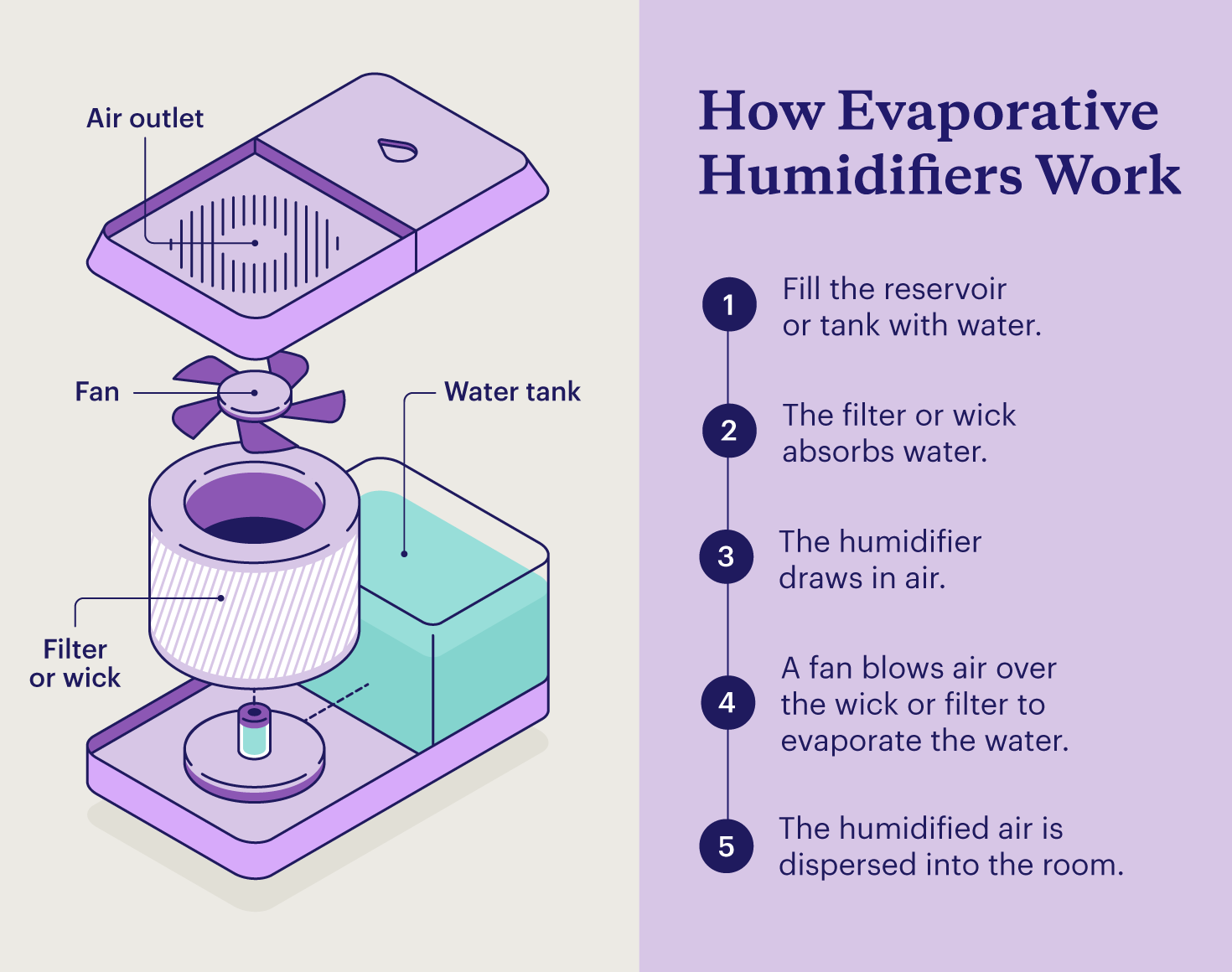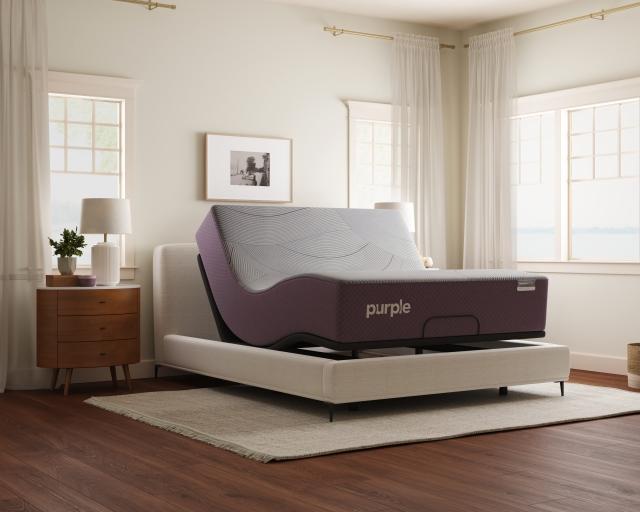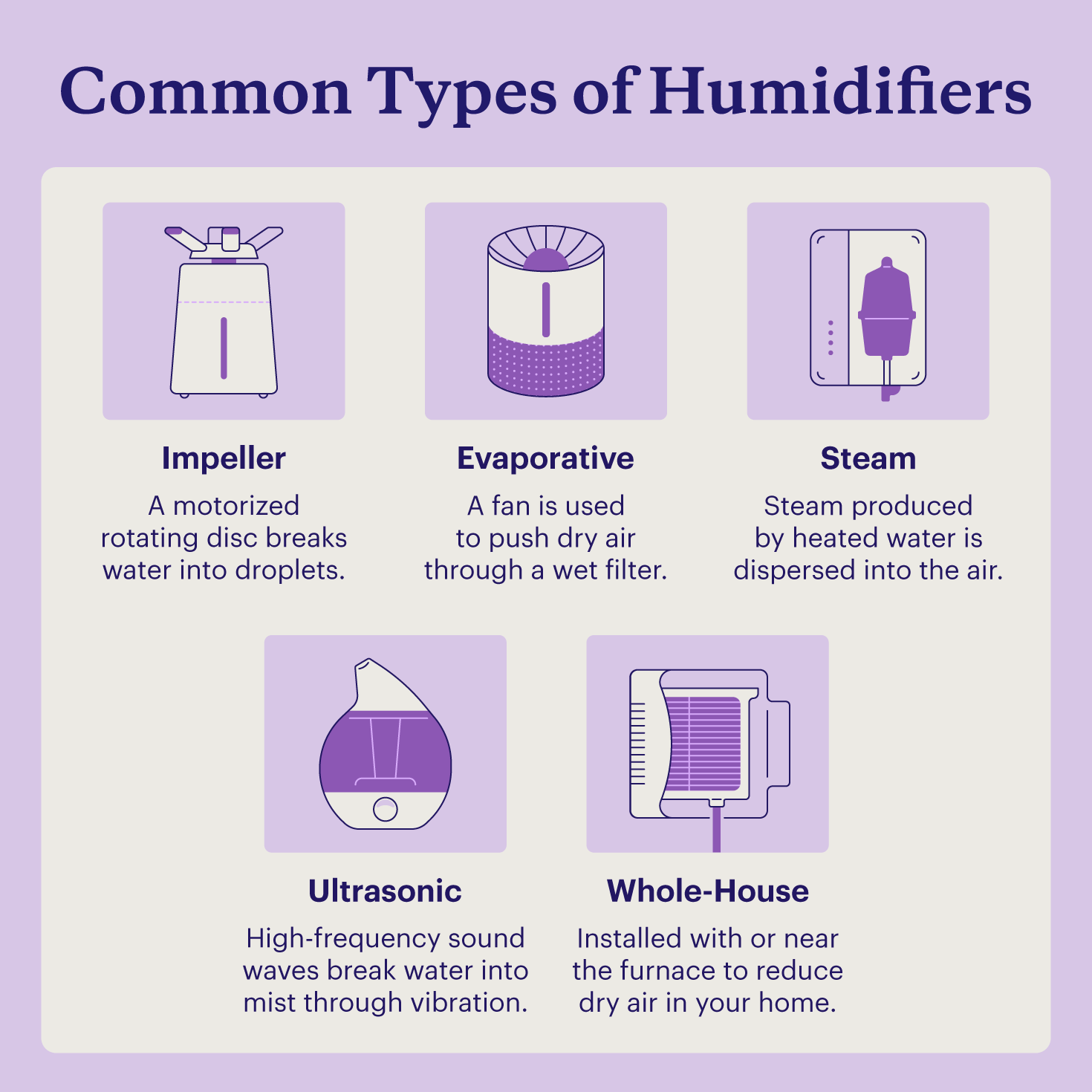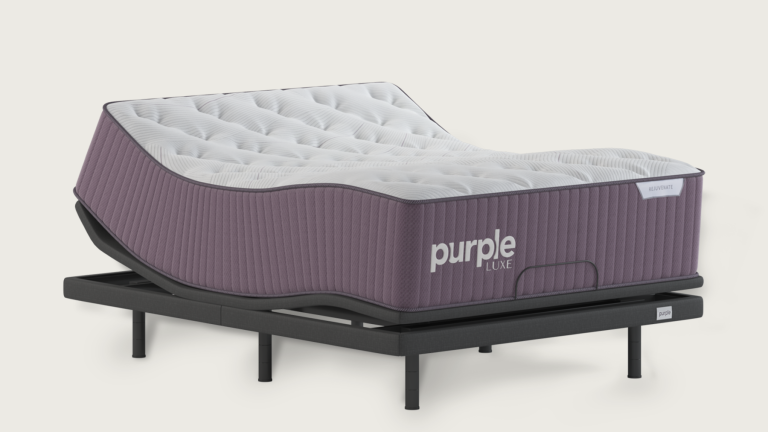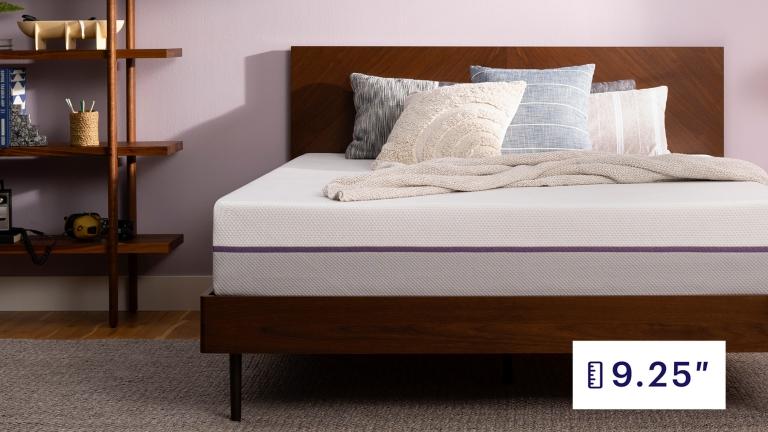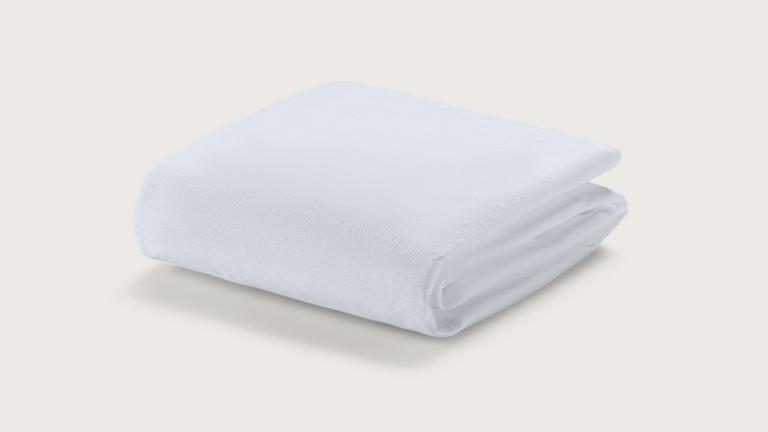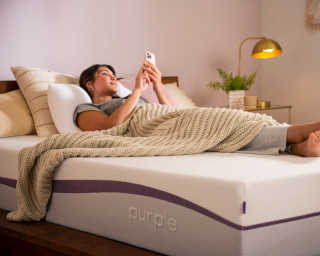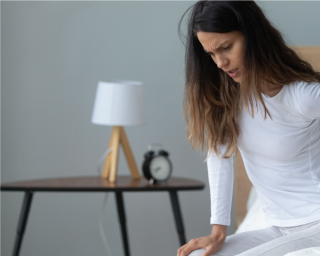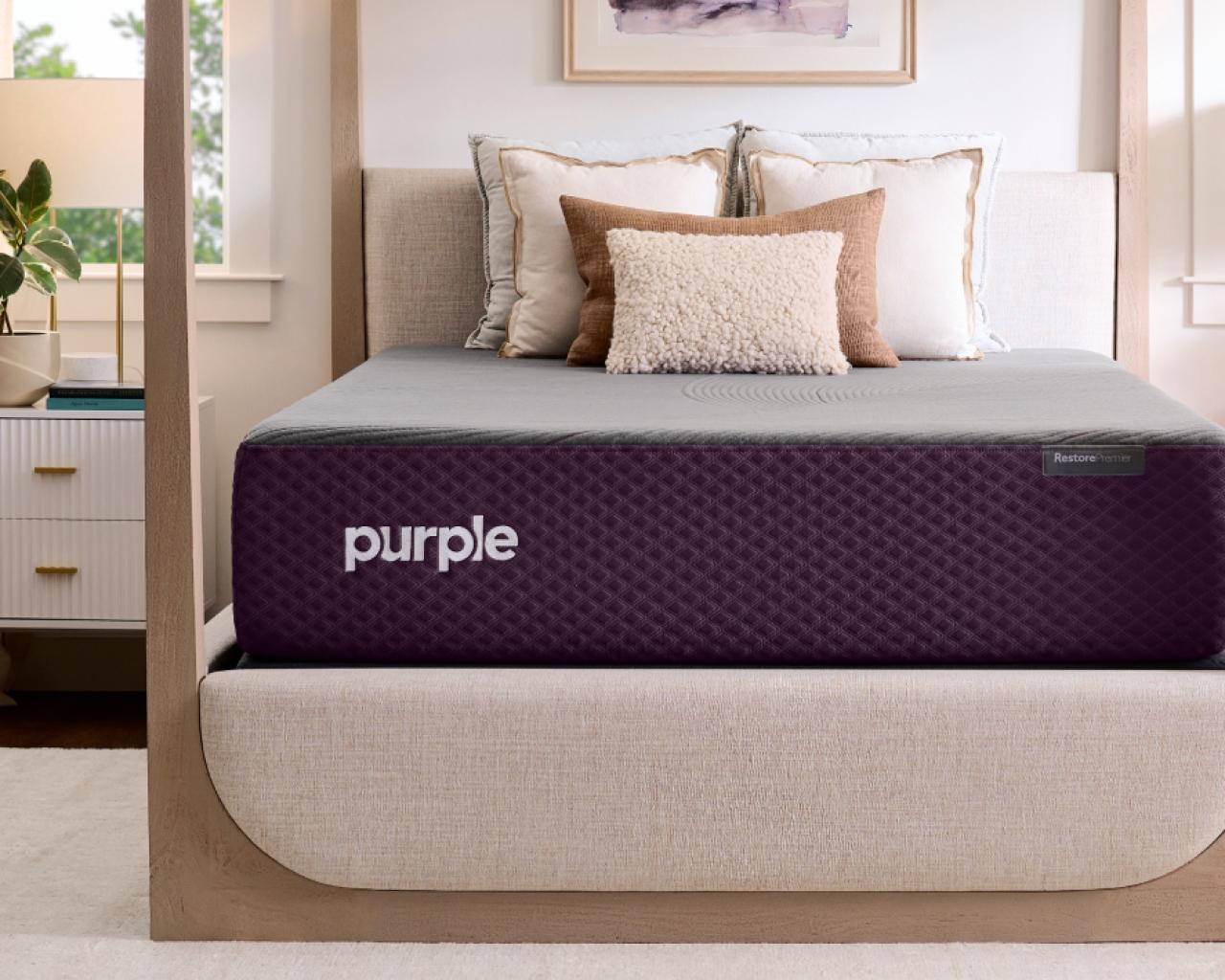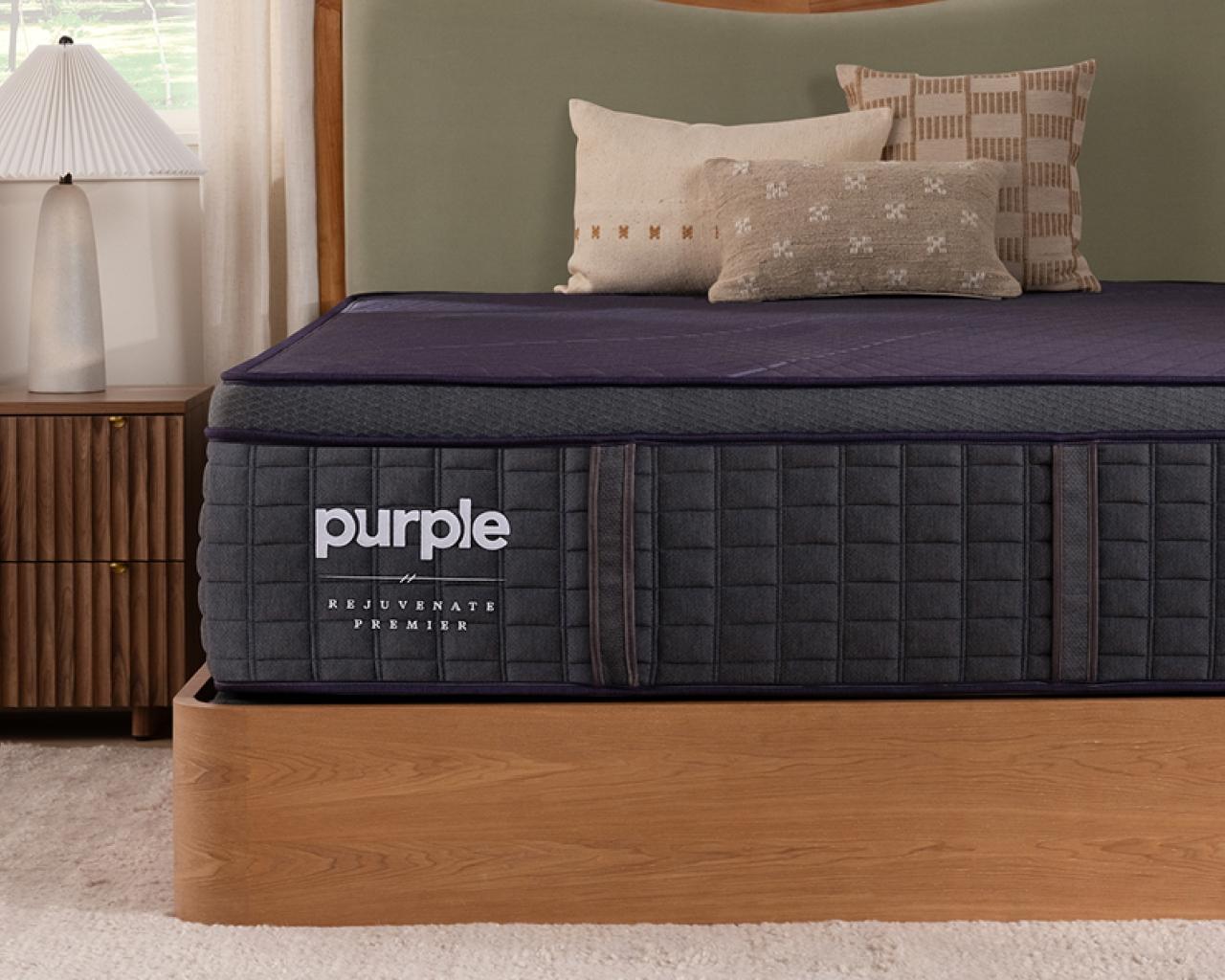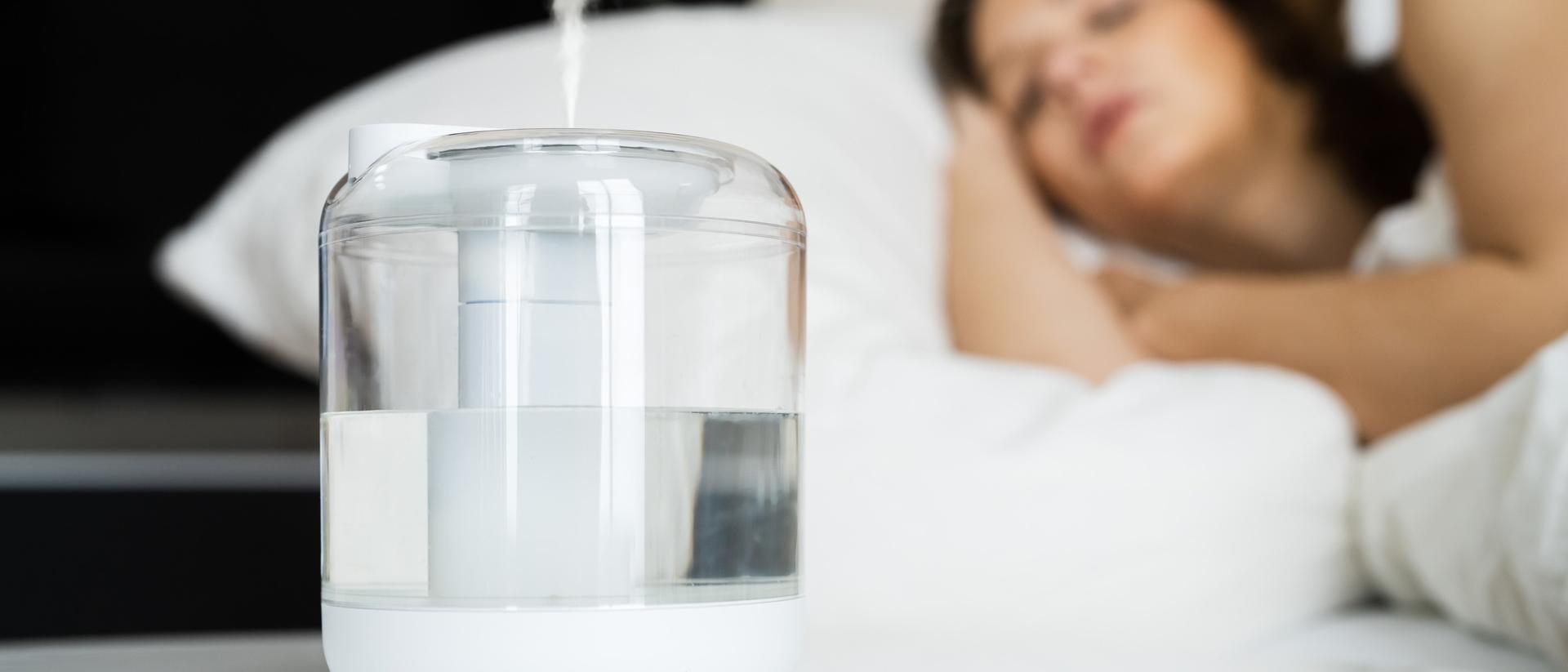
7 Benefits of a Humidifier While Sleeping
Key Takeaways
- Sleeping with a humidifier can enhance your sleep quality by alleviating discomfort caused by dry air.
- One of the key benefits of a humidifier while sleeping is its ability to keep your sinuses healthy and reduce the risk of congestion.
- Maintaining optimal humidity levels can relieve allergy symptoms, making breathing easier during sleep.
Difficulty breathing, dry skin, and persistent allergy symptoms are a few of the most common sleep challenges.
One often overlooked factor that can contribute to these issues is dry air. Dry air can dehydrate the respiratory system and skin, triggering irritation and worsening allergy symptoms.1 A simple yet effective solution is acknowledging the benefits of using a humidifier while sleeping.
Keep reading to learn why sleeping with a humidifier is a good idea and how you can choose the best device for your bedroom. Read along to learn how a humidifier can transform your nights.
What Does a Humidifier Do?
A humidifier is a device that adds moisture to the air. It releases water vapor or mist into the air through ultrasonic vibrations, boiling water, or other processes. This function is particularly beneficial in dry environments or during colder months when indoor air tends to be drier.
By increasing humidity levels, humidifiers maintain optimal moisture and alleviate dryness-associated symptoms, which can lead to better sleep quality and improved well-being.
Health Benefits of Sleeping With a Humidifier
To understand what a humidifier helps with, we need to explore how proper humidity levels can benefit your health and sleep. Let's explore some of these benefits below.
1. Keeps Your Sinuses Healthy
Dry air can be a persistent problem for your sinuses, especially during winter when indoor heating strips moisture from the air. Dryness irritates sensitive nasal tissues, making them more susceptible to inflammation and bleeding. When the sinuses are dry, you may experience discomfort, congestion, and an increased risk of sinus infections.
Humidifiers can improve your sinus health by adding moisture back into the air. Maintaining optimal humidity levels helps soothe nasal passages, break up mucus, and reduce irritation.2 Properly hydrated sinuses help alleviate respiratory issues, facilitate easier breathing, and improve sleep quality.
2. Relieves Allergy Symptoms
Dry air exacerbates bedroom allergies by creating an environment where allergens thrive. They become airborne and more irritating to the respiratory system.
When humidity levels drop, the mucous membranes in our airways can dry out, making it harder for the body to clear these allergens. They can result in sneezing, congestion, and irritation.3
Using a humidifier effectively combats this issue. One of the benefits of using a humidifier while sleeping is that it traps airborne allergens in moisture. It reduces their presence, making them less likely to trigger allergic reactions. Additionally, the added humidity keeps your airways moist and enhances your body’s natural defense mechanisms.4
3. Keeps Your Skin Soft and Supple
Dry air can wreak havoc on your skin, causing issues like cracking and peeling. When humidity levels drop, the skin loses moisture more rapidly. This increases transepidermal water loss, leaving your skin feeling tight and uncomfortable. Over time, prolonged exposure to dry air can even make fine lines and wrinkles appear sooner on the face.5
Using a bedroom humidifier can counteract these effects by maintaining optimal moisture levels in the air. This added humidity helps your skin retain hydration and elasticity. It also promotes a softer, more supple appearance.6 As you enjoy your beauty sleep, your skin can repair and rejuvenate.
4. May Help Curb Snoring
40% of men and 24% of women snore regularly,7 often due to factors like poor mattress or pillow choice and environmental conditions like dry air. When the air lacks moisture, it can irritate the throat and nasal passages, causing them to inflame and narrow. This inflammation will increase the chances of snoring during sleep.
Using a humidifier can be an effective way to curb this issue. By sleeping with a humidifier, you keep the throat and nasal pathways moist. This reduces irritation, leading to quieter nights.8 Additionally, creating the right sleep conditions with a quality mattress and pillow can further enhance your sleep quality. Using an adjustable base to elevate your head may also help you stop snoring.
5. Prevents Static Electricity
Dry air, especially during winter months, can lead to an irritating buildup of static electricity. When humidity levels drop, electrons on surfaces accumulate. They can result in those annoying shocks when you touch metal or even your bedding.
A humidifier can actively combat this problem by adding moisture to the air. This moisture increases the air's conductivity and disperses excess electrons.9 As a result, a humidifier can keep your cotton or microfiber sheets shock-free and comfortable throughout the night.
6. Soothes Asthma Flare-ups
Dry air can aggravate asthma flare-ups by irritating the airways and causing inflammation.10 When humidity levels drop, the air becomes less conducive to comfortable breathing, leading to symptoms such as coughing and wheezing. This dryness can trigger asthma attacks, especially at night.
A humidifier can be a vital tool in managing asthma symptoms. By adding moisture to the air, humidifiers may soothe inflamed airways and make breathing easier.11
7. Improves Sleep Quality
Dry air can significantly disrupt your sleep quality. When humidity levels are low, different irritations can awaken you throughout the night. Furthermore, dry air can exacerbate existing health conditions.
Understanding how to sleep better involves addressing these issues. A bedroom humidifier can enhance your sleep experience by maintaining optimal humidity levels, reducing discomfort, and creating a soothing environment. Place one in your bedroom and experience the benefits of a humidifier at night with uninterrupted sleep.
How To Choose a Humidifier
When selecting a humidifier, consider whether you prefer cool or warm mist. Cool mist options are often safer for those with children, while warm mist units provide a more hygienic solution by boiling water. Here are some types of humidifiers to consider:
Warm Mist Humidifiers
Types: Steam humidifiers, whole-house humidifiers
Warm mist humidifiers come in different types. One type is the steam humidifier, which boils water to produce steam and offers a hygienic option by killing the most harmful bacteria. Another type is the whole-house humidifier. This device connects to your home's HVAC system to maintain humidity throughout the entire house.
Cool Mist Humidifiers
Types: Ultrasonic humidifiers, evaporative humidifiers, impeller humidifiers
Cool mist humidifiers are also available in several varieties. The ultrasonic humidifier uses vibrations to quietly produce a fine mist. The evaporative humidifier blows air through a wet wick or filter, adding moisture to the air while filtering out impurities. Lastly, the impeller humidifier uses a rotating disk to fling water into the air.
Consider factors like your room size, the device’s maintenance requirements, and safety features to select the best bedroom humidifier for your needs.
Tips for Sleeping With a Humidifier
Using a humidifier can promote better sleep. However, not taking proper care of it can lead to problems like mold and bacteria growth from unclean filters and water tanks. To maximize the benefits of your humidifier and maintain a healthy environment, keep these tips in mind:
- Ideal Humidity Levels: Aim for 30-50% humidity for optimal comfort.
- Water Type: Use distilled or demineralized water to prevent mineral buildup.
- Placement: Place the humidifier at least a few feet away from your bed for optimal coverage.
- Maintenance: Regularly clean your humidifier to prevent mold and bacteria growth.
- Use a Waterproof Mattress Protector: Protect your mattress from excess moisture with a waterproof mattress protector.
- Avoid Over-Humidifying: Be cautious not to over-humidify your room, as excessive moisture can lead to mold growth and dust mites.
- Essential Oils and Additives: If you’re using essential oils, ensure they are safe for your humidifier type. Additives may cause damage to some models.
Creating the Perfect Sleep Environment Is Possible
Ultimately, you should sleep with a humidifier on if you want to enjoy a more restful night. A humidifier can improve your sleep by addressing issues caused by dry air and ensuring your bedroom has the right humidity levels.
Additionally, replacing your old mattress with a quality option from the Purple Essential Collection, which features the innovative GelFlex® Grid for adaptive support and pressure relief, can further elevate your sleep experience. Discover the benefits of a humidifier while sleeping and explore Purple’s range of mattresses and sleep essentials to unlock a restful night’s sleep.
FAQ
Yes, it is safe to sleep with a humidifier on every night. A humidifier can help alleviate dry air symptoms, making your sleep more comfortable. Just be sure you maintain the device properly and keep the humidity levels balanced. This will help avoid excessive moisture which can lead to mold growth or other issues.
The ideal humidity level for sleeping is typically between 30% and 50%. This range helps keep the air comfortable without causing excessive dryness or dampness. Maintaining this balance allows you to experience the benefits of a humidifier while sleeping, promoting better respiratory health and overall sleep quality.
While humidifiers have several benefits, there are potential downsides as well. Over-humidification can promote mold growth, dust mites, and respiratory issues. Monitor humidity levels and clean your humidifier regularly to mitigate these risks.
Place your humidifier about three feet away from your bed. This distance allows moisture to circulate effectively. It will also prevent your sleeping area from becoming too damp. Be mindful of the direction of the mist to ensure it covers the entire room evenly. Keep the humidifier at least a few inches away from the wall as well to allow for proper air circulation and prevent damage to the wall surface.
Avoid sleeping with a humidifier if the humidity levels in your room are already high or if you suffer from specific respiratory conditions that could worsen with added moisture, such as chronic obstructive pulmonary disease (COPD). If you notice mold growth or excessive dampness, it’s best to turn off the humidifier and reassess your room's humidity needs.
If your humidifier runs out of water overnight, it will typically stop producing mist. Most modern devices will shut off automatically to prevent damage. However, it's best to check the water levels regularly and refill the device before bedtime. This will ensure you enjoy the full benefits of humidification for a restful night's sleep.
More To Explore
Level up your sleep routine with our most-loved products.

